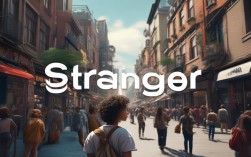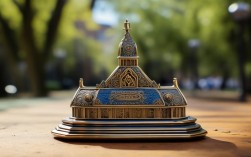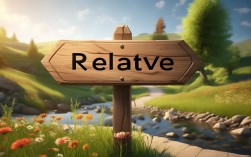在雅思口语考试中,"surprise"是一个高频且贴近生活的话题,几乎每个考生都可能遇到,无论是描述一次意外的经历、表达对某事的惊讶,还是探讨惊喜带来的情感影响,掌握这个话题的答题技巧都能帮助考生更流畅地展现语言能力,本文将从多个角度解析"surprise"在雅思口语中的应用,包括常见话题类型、高分表达策略及实战范例,助力考生从容应对。

雅思口语中的"surprise"话题类型
雅思口语Part 1、Part 2、Part 3均可能涉及"surprise",但考察重点各有不同:
- Part 1:聚焦个人经历,考官常通过简单问题了解考生基础表达能力,如"Have you ever been surprised by a gift?"(你曾被礼物惊喜到过吗?)。
- Part 2:要求描述具体事件,需包含细节和情感,如"Describe a time you received a surprise"(描述一次收到惊喜的经历)。
- Part 3:延伸讨论社会现象或抽象观点,如"Why do people like surprises?"(为什么人们喜欢惊喜?)。
以下为各部分常见问题概览:
| 口语部分 | 常见问题示例 |
|---|---|
| Part 1 | Is it good to have surprises in life? Have you ever surprised others? |
| Part 2 | Describe a surprise you had. What was it? Who was involved? How did you feel? |
| Part 3 | Do you think surprises are important in relationships? How do people express surprise? |
高分表达策略:从词汇到逻辑
要围绕"surprise"获得高分,需兼顾语言准确性和内容逻辑性,以下是关键技巧:
词汇升级:避免重复,精准表达
基础词汇如"surprised"可替换为更丰富的表达,
- 形容词:astonished(震惊的)、stunned(目瞪口呆的)、taken aback(吃惊的)、flabbergasted(目瞪口呆的)
- 动词:baffle(使困惑)、dumbfound(使说不出话)、astound(使惊讶)
- 短语:catch someone off guard(让某人措手不及)、be beyond one's wildest dreams(超出最疯狂的想象)
例句:
- "I was utterly stunned when my friends shouted 'Happy Birthday' behind me."(当朋友们在我身后喊“生日快乐”时,我完全惊呆了。)
- "The news was beyond my wildest dreams—I never expected to win the scholarship."(这个消息超出了我最疯狂的想象——我从未想过能获得奖学金。)
逻辑结构:清晰展开,细节饱满
无论是描述事件还是讨论观点,都需遵循“总-分-总”或“背景-发展-高潮-结局”的结构,以Part 2为例:
- 背景:交代时间、地点、人物(如"Last month, on my 20th birthday...")
- 发展:描述惊喜的起因(如"My roommate had been planning a party for weeks...")
- 高潮:突出细节和情感(如"When I walked into the dorm, I saw balloons and my favorite cake...")
- 结局:总结影响或感受(如"It was the most thoughtful surprise ever...")
情感共鸣:用细节打动考官
考官不仅关注语言准确性,更希望听到真实、有感染力的内容,可通过感官描写(视觉、听觉、心理活动)增强画面感:
- "My heart raced as I saw the red envelope—my parents had secretly sent me money for my trip to Japan."(当我看到那个红色信封时,心跳加速——父母悄悄给我寄了去日本旅行的钱。)
- "Tears welled up in my eyes when my best friend handed me the concert ticket I'd been wanting for months."(当我最好的朋友递给我那张我梦寐以求的演唱会门票时,眼泪夺眶而出。)
实战范例:Part 2高分回答
Describe a surprise you received.
(Last winter, during the university holiday, I received a surprise that I’ll never forget.)
Background
I had been feeling homesick after moving to a new city for my studies. That Christmas, my parents called to say they couldn’t visit due to work, which made me a little down. However, little did I know, my older sister had been secretly planning a trip to see me.
Development
On the evening of December 24th, I was video-chatting with my parents when the doorbell rang. Thinking it was a neighbor, I opened the door to find my sister standing there, holding a big suitcase and a warm smile. She had taken a red-eye flight just to spend Christmas with me. I was so shocked that I couldn’t speak for a solid ten seconds—my mind went completely blank!
High Point
What surprised me most was the gift she brought: a handmade scrapbook filled with photos of our childhood and notes from our family. Each page had a little note, like "Remember when we built that snowman in 2010?" or "I’m proud of you for chasing your dreams." It wasn’t an expensive gift, but the effort and love behind it moved me to tears. We stayed up all night talking, eating takeout, and watching old movies—just like we did when we were kids.
Conclusion
That surprise taught me that the most meaningful gifts aren’t things, but the time and effort people invest in making you feel loved. Even now, whenever I feel stressed, I look at the scrapbook and remember how loved I am. It wasn’t just a Christmas surprise; it was a reminder of the importance of family.
相关问答FAQs
Q1: 如何在Part 3中深入讨论"surprise"的社会意义?
A: 在Part 3中,需从个人经历延伸到更广泛的观点,当被问"Why do people like surprises?"时,可分点回答:
- 心理层面:Surprises trigger dopamine release, creating instant happiness(惊喜会触发多巴胺释放,带来即时快乐);
- 关系层面:They strengthen bonds by showing thoughtfulness(通过体现用心,惊喜能增进关系);
- 文化层面:In some cultures, surprises are part of traditions (e.g., birthday surprise parties)(在某些文化中,惊喜是传统的一部分,如生日惊喜派对)。
最后可举例说明,如"Companies like Coca-Cola use 'Share a Coke' campaigns to surprise customers, making them feel special"(可口可乐等公司通过“分享可乐”活动让顾客感到惊喜,增强品牌好感)。
Q2: 如何避免在描述"surprise"时内容空洞?
A: 避免泛泛而谈,需加入具体细节,不说"I was surprised by the gift",而是描述:
- 细节1:The gift was a vintage camera from the 1970s, with a leather case and a handwritten note saying, "For the photographer in you—keep capturing moments."(礼物是一台1970年代的复古相机,配有皮质皮套和一张手写纸条:“致你心中的摄影师——继续记录瞬间。”)
- 细节2:I had mentioned wanting to learn film photography in a blog post months ago, and my friend had remembered.(几个月前我在博客里提到想学胶片摄影,而朋友记住了这件事。)
通过具体物品、动作和背景故事,内容会更真实、有说服力。











